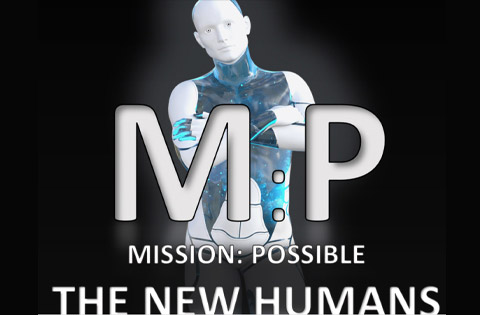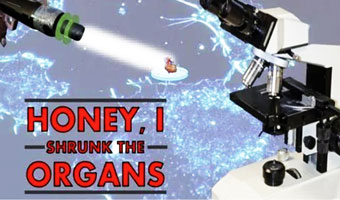
The future of medicine already exists at Hadassah. That was the message Hadassah Medical Organization Director General Prof. Zeev Rotstein conveyed to participants from around the world during the November 5 launch of “Mission Possible: The New Humans,” the first episode of Hadassah International’s Winter Live Series, “Fifty Shades of Health: A Journey Into the Future of Medicine.”
Many of modern medicine’s advances, Prof. Rotstein explained, are already part of Hadassah’s armamentarium. Take big data, for example, where medical information and patient records are stored as digital data. As Prof. Rotstein noted, with the use of algorithms and artificial intelligence to interpret an individual’s diagnostic data against the background of a wealth of stored information about medical symptoms and diseases, big data becomes a powerful tool to pinpoint a patient’s diagnosis.
Looking into the future, Prof. Rotstein surmised that physicians won’t need to rely on their memory to treat patients because they will have collective memory through big data. He commented, “I can’t think of any medical field where a physician wouldn’t use big data. Decision making, based on big data, goes beyond the human brain.”
Also center stage in medicine’s future is telemedicine, Prof. Rotstein said. While video doctors’ visits and remote monitoring of patients’ vital signs have already begun, the future will see many advances in the capabilities of telemedicine. “You can be connected continuously to your hospital’s medical staff,” he said. For example, picture a person who has a heart attack on the street. Automatically, an alert will be sent to emergency medical services, which will dispatch help immediately.
Now picture a husband and wife asleep at home. Unbeknown to the wife, the husband’s heart begins to behave erratically. The wife gets a call and is told to get their defibrillator to keep her husband alive while simultaneously an ambulance is dispatched. This type of telemedicine is “almost available,” Rotstein said. And it is his vision that Hadassah will be the first hospital in the country to implement this life-saving technology.
“Health sensors will be so advanced,” Prof. Rotstein explained, that every blink of your eye, every breath you take, will be recorded.”
Hadassah is currently piloting the use of digital nurses to guide oncology patients through their treatments and to troubleshoot side effects. For example, with the help of artificial intelligence, the digital nurse can give feedback to a patient who is suffering from nausea. Based on big data concerning the patient’s particular form of cancer and treatment, the digital nurse suggests a medicine, relays that information to a pharmacy, and a pharmacist fills the prescription and has the medicine delivered to the patient. As Prof. Rotstein admitted, “the digital nurse doesn’t replace the human nurse,” but the technology broadens the care a patient can receive remotely.
In the surgical field, Prof. Rotstein said, autonomous robotics is the wave of the future. Hadassah’s physicians, he related, are taking part in developing cutting-edge robotics. “The combined use of robots and computers is already here,” he said.
Another change on the horizon is a new role for hospitals. “The hospital will be reserved for those who are severely ill and need certain special treatments that can’t be delivered at home,” Prof. Rotstein said. Remote medicine and advancing digital systems will turn the patient’s home into a home hospital.
When asked what diseases will cease to be a problem 10 years from now, Prof. Rotstein spoke about advances in diabetes treatment. He predicted that an artificial pancreas, now experimental, will be commercially available in two to three years. In 10 years? Prof. Rotstein expects that we will be able to transplant insulin-producing cells, which will assume the role of the pancreas, thereby curing diabetes. Prof. Rotstein also waxed optimistic about manufacturing stem cells to create new body parts, such as the jaw, the lungs, and even the heart. Experiments are in the early stage, he said, but “we are moving forward.”
There is one major problem in implementing all these medical advances. “As frequent innovations and new technologies enter the system,” Prof. Rotstein warns, “they exponentially increase the costs of medicine. And no public health care system can cover these costs.” This is our “modern saga,” he noted, where our ability to provide life-saving modern treatments surpasses our capacity to afford them.
Despite the challenges, Prof. Rotstein was optimistic about the future of medicine. HMO, he said, “is among the world’s medical leaders, an international Ivy League of hospitals.” And, he added, “Like the founder of Hadassah, the Women’s Zionist Organization of America, “HMO is a big dreamer.”
Learn more about the Hadassah Medical Organization.









